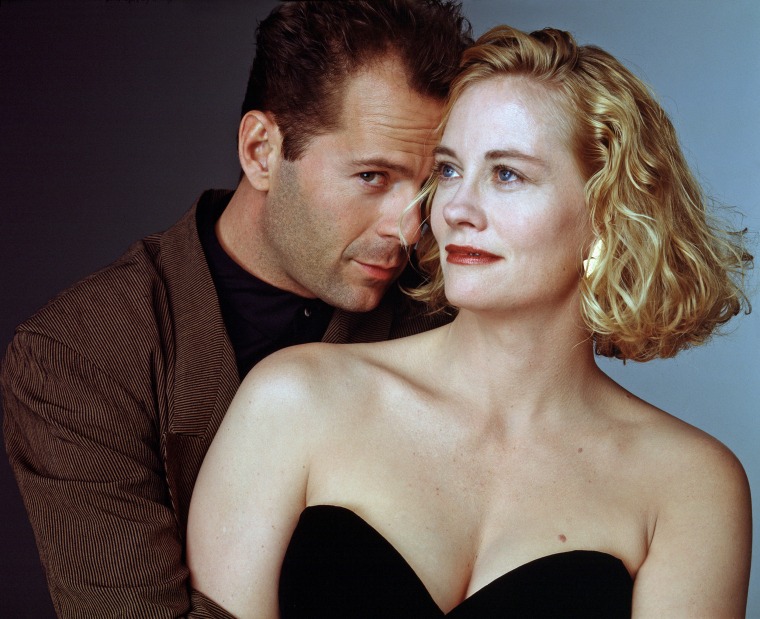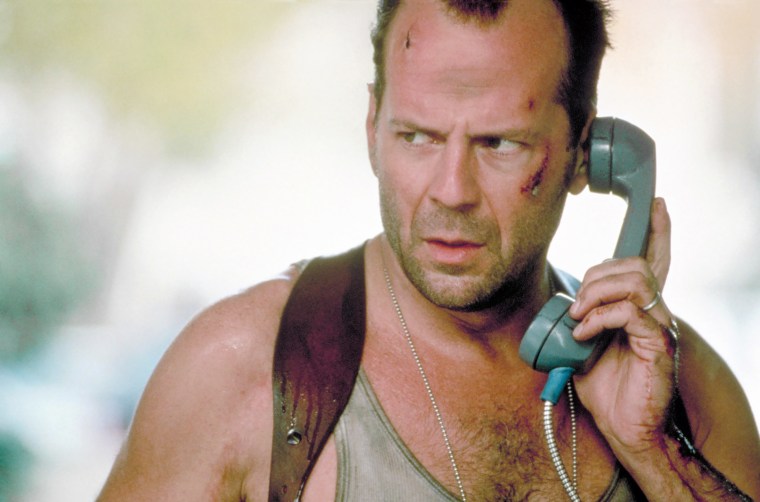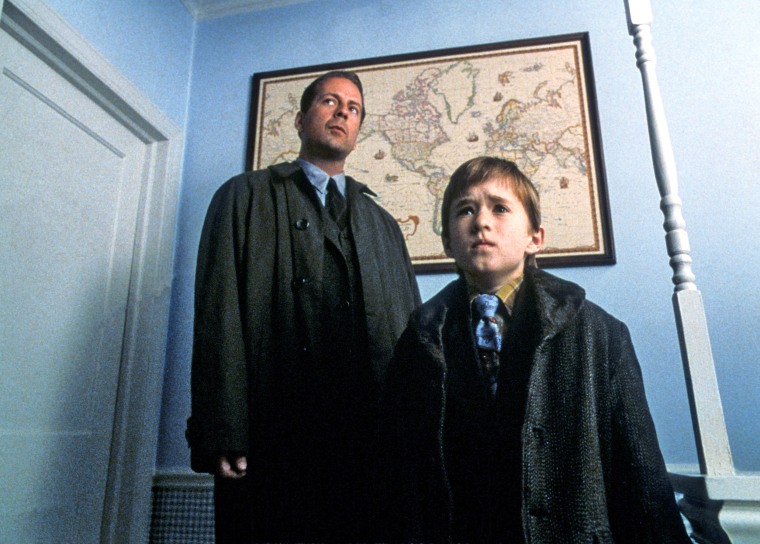The big-screen acting career of Bruce Willis is at once archetypal and unclassifiable.
He is a vintage Hollywood he-man, the brawny and wisecracking action heavyweight who walks on shards of glass in "Die Hard" and nukes an asteroid in "Armageddon."
But he confounds audiences, too: campy in "Death Becomes Her," soulful in "The Sixth Sense," tender in "Moonrise Kingdom." How many Reagan-era stars fit in the world of Wes Anderson?
The news on Wednesday that Willis, 67, plans to step away from acting because of a medical condition is a blow to fans who followed his career ups and downs for decades — flops to comebacks, direct-to-DVD oddities to big-budget spectacles.
"Bruce has been experiencing some health issues and has recently been diagnosed with aphasia, which is impacting his cognitive abilities," the actor's eldest daughter, Rumer Willis, wrote in an Instagram post.
"As a result of this and with much consideration Bruce is stepping away from the career that has meant so much to him," she added.
It remains to be seen whether Willis might return to acting, but the news brings a close — for now — to one of modern Hollywood’s signature and most consistently surprising careers.

Willis shot to fame in 1985 with the quirky, gleefully meta ABC series "Moonlighting," opposite Cybill Shepherd. Willis and Shepherd, playing private detectives, regularly broke the fourth wall, directly addressing the audience or riffing on prime-time TV clichés.
The series offered early proof of the actor's abilities. He was instantly convincing as a wiseacre cop, but he seemed equally comfortable with the show's flights of fancy, like a black-and-white dream sequence that paid homage to 1940s noir.
"Moonlighting" made him a name, but "Die Hard" (1988) made him a brand. John McClane, the weary but agile New York City detective who takes on terrorists inside Nakatomi Plaza, cemented the actor in the pantheon of action heroes. It remains his defining screen role.
"Die Hard" also provides an instructive lesson in his appeal. McClane is essentially a gun-toting superhero, but he is also an American everyman: a workaholic husband trying to make amends, stuck inside an office building in a blood-stained tank top.
"Such a word about any friend would be distressing," John McTiernan, the director of the first and third "Die Hard" films, said in an email to NBC News. "About a man with Bruce's ferocious wit and nearly magical ability to communicate ... it is triply grieving."
"He is fortunate to have such a supportive family," the filmmaker added. "I wish them the best."
In contrast to some other 1980s "hard bodies," Willis was clearly not content to keep milking the same genre ad infinitum. In the second decade of his national stardom, he pushed himself into more challenging territory.

Of course, not all of those bets paid off. "The Bonfire of the Vanities" and "Hudson Hawk" were box-office disasters that dented his industry standing.
But as ever, Willis was a master of surprise.
He rebounded with his turn as Butch, a prizefighter who refuses to take a dive, in Quentin Tarantino's "Pulp Fiction," an explosive cultural phenomenon that also helped revive the career of co-star John Travolta.
"Pulp Fiction" was perfectly suited to his gifts as a performer. Tarantino's dialogue — a heady mix of hard-boiled aphorisms, lowbrow allusions and mock-philosophical banter — allowed Willis to show off his tonal range.
"Zed's dead, baby, Zed's dead," Butch informs his girlfriend as she hops on a stolen Harley-Davidson chopper. It's a simple enough line, but Willis endows it with underworld grit, macho swagger and a subtle wink at the cosmic absurdity of his situation.
In the years after "Pulp Fiction," Willis flexed his action-star muscles in vehicles that were conventional ("Die Hard With a Vengeance"), offbeat ("12 Monkeys," "The Fifth Element") and sometimes commercially catastrophic, as with 1996's "Last Man Standing."
He ended the mixed-bag decade on a high note with one of his most sensitive and soul-baring performances, in M. Night Shyamalan's "The Sixth Sense." In stark contrast with the foul-mouthed excess of John McClane, Willis' character barely spoke above a whisper.
In the decade that followed, Willis jumped across genres: the usual stunt-driven action flicks as well as romances ("The Story of Us"), family fare (Disney's "The Kid"), comedic spins on his tough-guy persona ("The Whole Nine Yards") and "Die Hard" sequels.

In more recent years, Willis has been a mainstay of low-budget straight-to-video thrillers. He appeared in eight films last year alone, including under-the-radar titles like "Cosmic Sin," "Out of Death" and "Deadlock."
Randall Emmett, the prolific producer who has worked with Willis on more than 20 films, praised him as a "terrific actor" in a statement shared with NBC News.
"I fully support Bruce and his family during this challenging time and admire him for his courage in battling this incredibly difficult medical condition," Emmett said.
Every now and then, amid the torrent of B-movies, Willis showed that old skill for rattling expectations. He is unexpectedly touching as a melancholy police captain in "Moonrise Kingdom" and poignant as a widowed assassin facing off against his younger self in "Looper."
No matter what comes next, Willis' legacy is assured. He could do it all — and through sheer determination, he did.
